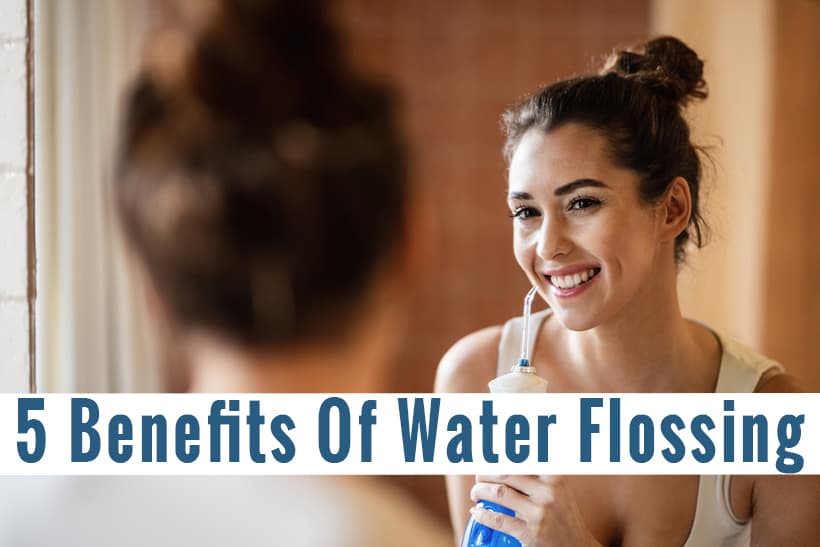The Benefits of Water Flossing: Achieving Optimal Oral Health
Water flossing, also known as oral irrigation, is a highly effective method for achieving optimal oral health. In this article, we will explore the numerous benefits of water flossing and why it surpasses traditional flossing methods in terms of efficiency and effectiveness.
Enhanced Plaque Removal
One of the key advantages of water flossing is its ability to remove plaque more effectively than traditional flossing. The pulsating water jet reaches deep into the gum pockets and between teeth, dislodging and flushing out bacteria, food particles, and plaque buildup. This thorough cleaning process helps prevent gum disease, cavities, and bad breath.
Gentle and Comfortable
Unlike traditional flossing, which can cause discomfort and irritation, water flossing is gentle on the gums and teeth. The pulsating water stream provides a soothing and massaging effect, promoting healthy blood flow and reducing gum sensitivity. This makes it an excellent option for individuals with sensitive gums, braces, or dental implants.
Easy to Use and Time-Saving
Water flossers are incredibly user-friendly, making them a convenient and time-saving alternative to traditional flossing. With their ergonomic design and adjustable pressure settings, water flossers allow for effortless maneuverability and customization based on individual needs. The quick and efficient cleaning process saves valuable time, especially for those with busy lifestyles.
Targeted Cleaning for Hard-to-Reach Areas
Water flossers are particularly effective at reaching areas that are challenging to clean with traditional flossing. The pulsating water jet can access deep gum pockets, and tight spaces between teeth, and around dental work, ensuring a thorough cleaning. This targeted cleaning helps prevent the accumulation of plaque and reduces the risk of gum inflammation and infection.
Enhanced Gum Health
Regular water flossing promotes healthier gums by stimulating circulation and reducing inflammation. The pulsating action of the water jet increases blood flow to the gum tissues, promoting healing and strengthening the gum line. This can help prevent gum recession and improve overall gum health, reducing the risk of periodontal disease.
Convenient for Orthodontic Care
Water flossing is highly beneficial for individuals with orthodontic appliances, such as braces or retainers. The pulsating water jet easily removes food particles and plaque from tight spaces around brackets and wires, ensuring thorough cleaning and reducing the risk of tooth decay and gum problems. Water flossers with specialized orthodontic tips provide even greater convenience and effectiveness for these individuals.
Suitable for All Ages
Water flossing is suitable for individuals of all ages, from children to seniors. Its gentle and customizable pressure settings make it safe and effective for children’s delicate gums, while also catering to the specific needs of adults. Water flossing is an excellent addition to oral hygiene routines for the entire family, promoting long-term oral health.

Water flossing offers a multitude of benefits for achieving optimal oral health. Its superior plaque removal, gentle and comfortable experience, ease of use, targeted cleaning, enhanced gum health, convenience for orthodontic care, and suitability for all ages make it a highly recommended oral hygiene practice. By incorporating water flossing into your daily routine, you can take significant steps toward maintaining a healthy and beautiful smile.
Frequently Asked Questions about the Benefits of Water Flossing
1. What is water flossing?
Water flossing is a method of cleaning between your teeth and along the gumline using a specialized device that emits a steady stream of water.
2. How does water flossing differ from traditional flossing?
Unlike traditional flossing, water flossing uses water pressure to remove plaque, bacteria, and food particles from hard-to-reach areas, providing a more thorough clean.
3. What are the benefits of water flossing?
Water flossing can effectively remove plaque, reduce gum inflammation, prevent cavities, reach areas that traditional floss may miss, and improve overall oral hygiene.
4. Is water flossing suitable for everyone?
Water flossing is generally safe for all ages and can be especially beneficial for people with braces, implants, crowns, or sensitive gums.
5. How often should I water floss?
It is recommended to water floss at least once a day, preferably after brushing your teeth.
6. Can water flossing replace regular brushing?
No, water flossing should be used as a complement to regular brushing, as it does not remove the sticky film of bacteria known as plaque that forms on teeth.
7. Does water flossing hurt?
No, water flossing is generally painless. However, if you have sensitive gums, you may experience some mild discomfort initially, which should subside with regular use.
8. Can I use mouthwash in my water flossing device?
It is not recommended to use mouthwash in your water flossing device, as it may damage the device and reduce its effectiveness. Use plain water or consult the manufacturer’s instructions for any recommended additives.
9. Are there any side effects of water flossing?
Water flossing is considered safe, but some people may experience temporary gum bleeding or sensitivity. If these symptoms persist, consult your dentist.
10. Can water flossing help with bad breath?
Yes, water flossing can help remove food particles and bacteria that contribute to bad breath, promoting fresher breath and improved oral hygiene.




